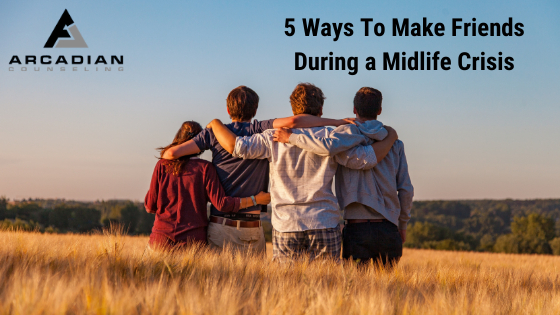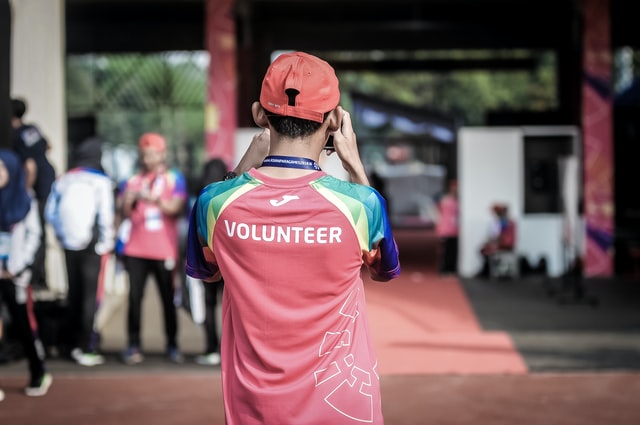For many people, middle-age is a catalyst to take stock in life. For some, the kids have left for college and there’s more time to consider your likes, dislikes, goals, and dreams. Often this turns into a “midlife crisis.”
But what happens if you’re short on friends?
Midlife is also the time we turn to look around and examine the strength of our social circle. Have we lost friends due to illness, a move, or divorce? Do we want something different out of our friendships?
As we age, many of us tend to have less tolerance or energy for surface friendships. We’re looking for substance and genuine a connection. In short, we don’t have time for bullshit.
But making friends when you’re older is not always easy. It was simple in school or during those early days in our first job when you saw the same people every day. You were surrounded by the same like-minded people who were in the same boat as you – looking to connect with others.
But once you get older, it becomes more difficult to meet new people. And if you find yourself in the midst of a midlife crisis – be it a recent divorce, job or career change, unexpected death, or simply just the realization that you aren’t the person you thought you’d be – going it alone can be tricky.
The good news is, while challenging, it’s very possible to make new, lasting and meaningful friendships – even (and especially) during a midlife crisis.
Here are 5 tips to make new friends during a midlife crisis:
1. Don’t feel embarrassed
There is no reason to feel embarrassed about being lonely or friendless. It is far more common than we are allowed to believe from the media. Identify and let go of unhelpful thoughts such as “Whats wrong with me?” or “I should have more friends” and let thoughts like, “It would be great to have someone to connect with regularly on the weekends” guide your actions and behaviors.
2. Volunteer
Volunteering is a great way to meet new people who share your values. As an added bonus, studies have shown that people who volunteer are healthier and live longer. If time is an issue, look for opportunities that don’t require long-term commitments like events around the holidays.
3. Take a class
Have you always wanted to learn jiu jitsu? Investing? Wine? Taking a class is a great way to learn more about something you already love, be engaged, keep your brain young, and meet people with similar interests and hobbies.
4. Reach out to acquaintances
How many times have you run into someone you “sort of know“ at your kids soccer game or at your local coffee shop? Every time you have a conversation with this person you think, “It would be cool to hang out more.”
The next time you see this person, ask if they’d like to grab a drink, lunch or come over and help with a project you think they’d enjoy. Believe it or not, asking for help in this way is one of the most effective ways to build friendships in adulthood.
5. Get into the habit of being social
By the time we hit a midlife crisis, we have gotten into some pretty solid habits. Some good…some not so good. If you’ve never been a social butterfly, but instead someone who is used to staying home with the kids or simply staying in because it’s easier, putting yourself out there will probably feel weird.
However, it’s important to be social daily. This could mean simply taking a walk around your neighborhood and saying hello to friendly faces or calling up an acquaintance for a chat.
Good relationships are important for our overall health and the quality of our lives. While it may seem intimidating to build new friendships in midlife, these can actually be some of the most lasting and meaningful connections we end up making.
Life is too short to spend it alone, especially in a midlife crisis. If you’re struggling to build relationships and connect with others, reach out and find an awesome therapist you like and trust who can help you overcome the obstacles getting in the way of building meaningful, rich, and strong relationships in your life.
James Killian, LPC is the Principal Therapist & Owner of Arcadian Counseling in New Haven, CT where they specialize in helping over-thinkers, high achievers, and perfectionists reduce stress, increase fulfillment and enhance performance so they can move From Surviving To Thriving.






